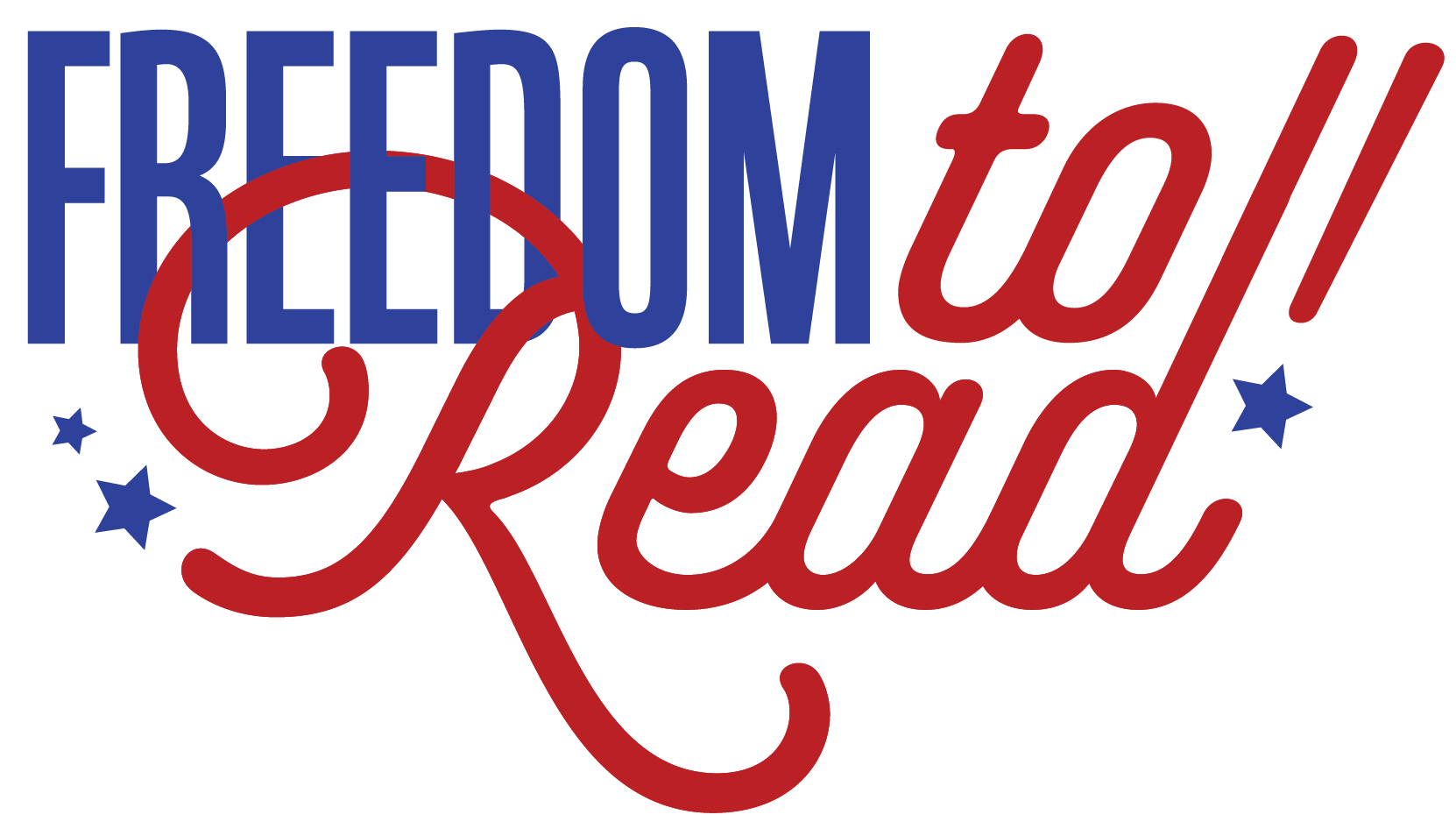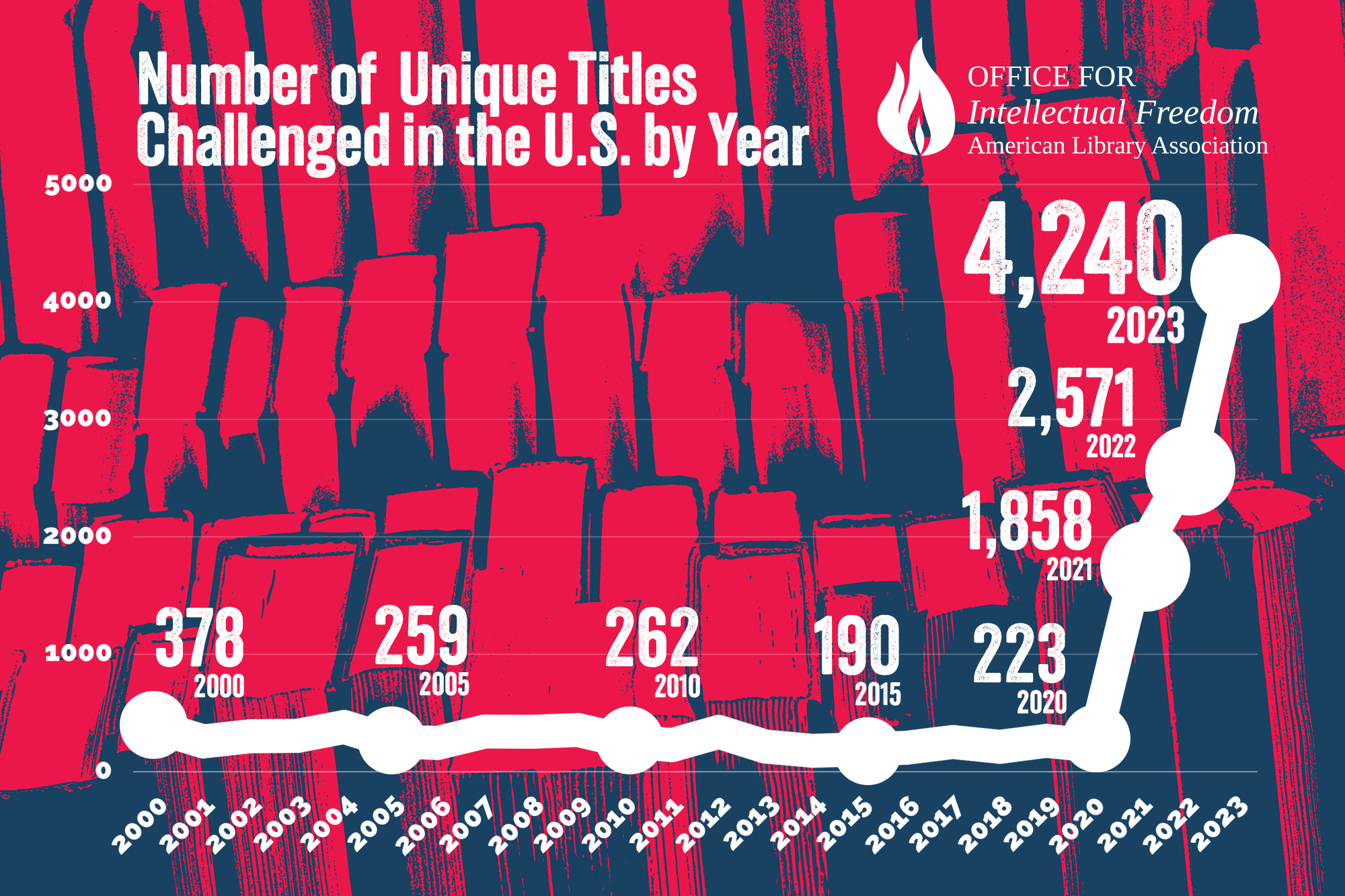
Freedom to Read Statement from Mesa County Libraries
- Mesa County Libraries (MCL) provide free and convenient access to materials that provide the widest range possible of viewpoints, opinions, and ideas, allowing individuals to learn, discover, create, and connect.
- MCL is committed to the values of respect and integrity, believing that it is our responsibility to be unwavering in our dedication to fostering a welcoming and safe community space where ALL people are valued, represented, and acknowledged.
- MCL supports the right of each individual and family to think and decide for themselves, to have their own opinions, and to read what they want. Protecting individuals’ right to access information is integral to a free, self-governed and informed society.
Freedom to Read FAQs
The Freedom to Read is the right of all individuals to have access to information and ideas, regardless of the content. It is a fundamental right that is guaranteed by the First Amendment of the Constitution. Libraries manifest the promises of the First Amendment by making available the widest possible range of viewpoints, opinions, and ideas, so that every person has the opportunity to freely read and consider information and ideas regardless of their content or the viewpoint of the author. This requires the professional expertise of public librarians who work in partnership with their communities to curate collections that serve the information needs of their community.
- A challenge is an attempt to remove or restrict access to materials in a specific institution. Challenges can be initiated by individuals or groups and can be based on a variety of objections. Material is considered banned when it is removed from a library's collection because of a challenge. While banned materials usually remain available for purchase, they are considered banned because they have been made unavailable to patrons of a particular institution who may or may not have the means to purchase them for themselves.
No.
- There is a difference between selection and censorship. The public library cannot possibly purchase nor house every book available. Professional staff select titles that would be of interest to the community based on such things as what is most checked out of the library, what is being talked about in popular culture, and what the community asks the library to purchase (Materials Request Form - library card and password required).
- Censorship removes access to materials, ideas and viewpoints. Its approach is negative and happens whenever people succeed in imposing their personal political or moral values on others by limiting access to “objectionable” material. Censorship by the government is unconstitutional.
- Most children that visit Mesa County Libraries do so with an adult who manages the visit to the library and supervises the child's use of the library.
- The children's area of the library only contains materials intended for youth under the age of 12. We encourage parents to be involved in their children's interactions with the library, including what titles they borrow and what events they attend. Many families have different values on what is and is not appropriate for their children. The library does not act in place of a parent. We believe parents have the right to make those choices for their children and have those conversations about their family’s values.
- In the process of reconsidering library material, library staff look at reviews and the content in the library material to determine if the material is placed in the right part of the library for its intended audience. There have been a few instances where material was moved to another part of the library.
- The process is to fill out the Request for Reconsideration form. This brings the title to library staff’s attention. A team of library staff look at criteria such as circulation rates (is it wanted by the community), scholarly reviews (how was it rated and for what audience), and occasionally look at where other libraries categorize the book, as well as looking at the tenets for Freedom to Read.
- Library professionals determine the audience of a title based on reviews, publisher’s recommendations and review of the material when needed once the title is acquired. Moving books to the adult section when the intended audience is another age group is a form of censorship.
- Library Staff who select library materials have titles categorized by age group. Reviews also indicate an age group.
- Public Libraries use a selection process to ensure they offer a variety of materials for many interests to meet educational, recreational, cultural, and informational needs of the communities we serve. This selection process divides materials among sections for children, teens, and adults to assist caregivers in helping to guide the children in their care to materials that are of interest and are accessible to them at their given reading level. At the library, we daily see oversight happen when parents or caregivers are letting kids know when they aren’t ready for certain material or if some material isn’t for them. Sometimes it’s because kids choose too many books to read in a week!
- Library staff use a variety of tools to select library materials. They use data on how the current collection is doing to identify popular topics, genres and authors. They use publication information to see which titles will get a big publicity push so more people will hear about it. They look at popular media and what titles they are talking about. They also use suggestions from patrons from completing an online form. Please see:
- Collection Development Policy
- Materials Request Form (library card and password required)
- The library uses feedback on evaluation forms at programs for future ideas, they use attendance rates for existing programs to determine if a similar program would be popular (and wanted), and they get ideas from conversations with patrons. Considerations are also given if a program is already available elsewhere in the community, the cost to put on the program including the cost of the presenter or the staff time to plan the program as well as the cost of supplies, and if there is time available in the library’s schedule for the program.
- Yes, please complete the Request to Partner with the library on Programming form with your idea. Library staff will follow up with you.
- The Central and Clifton library locations have community rooms available for the public to reserve free of charge. The libraries also have community bulletin boards to post flyers for dated events.
- You can complete a Request for Reconsideration form for library programs as well. The library has many programs for a wide variety of community members. We don’t expect all programs to be of interest to all community members. All community members are tax payers and for library programs they show their interest by attending programs. Those that do not want the program should not attend the program.
Library Bill of Rights
The American Library Association affirms that all libraries are forums for information and ideas, and that the following basic policies should guide their services.
I. Books and other library resources should be provided for the interest, information, and enlightenment of all people of the community the library serves. Materials should not be excluded because of the origin, background, or views of those contributing to their creation.
II. Libraries should provide materials and information presenting all points of view on current and historical issues. Materials should not be proscribed or removed because of partisan or doctrinal disapproval.
III. Libraries should challenge censorship in the fulfillment of their responsibility to provide information and enlightenment.
IV. Libraries should cooperate with all persons and groups concerned with resisting abridgment of free expression and free access to ideas.
V. A person’s right to use a library should not be denied or abridged because of origin, age, background, or views.
VI. Libraries which make exhibit spaces and meeting rooms available to the public they serve should make such facilities available on an equitable basis, regardless of the beliefs or affiliations of individuals or groups requesting their use.
VII. All people, regardless of origin, age, background, or views, possess a right to privacy and confidentiality in their library use. Libraries should advocate for, educate about, and protect people’s privacy, safeguarding all library use data, including personally identifiable information.
Adopted June 19, 1939, by the ALA Council; amended October 14, 1944; June 18, 1948; February 2, 1961; June 27, 1967; January 23, 1980; January 29, 2019.
Inclusion of “age” reaffirmed January 23, 1996.

